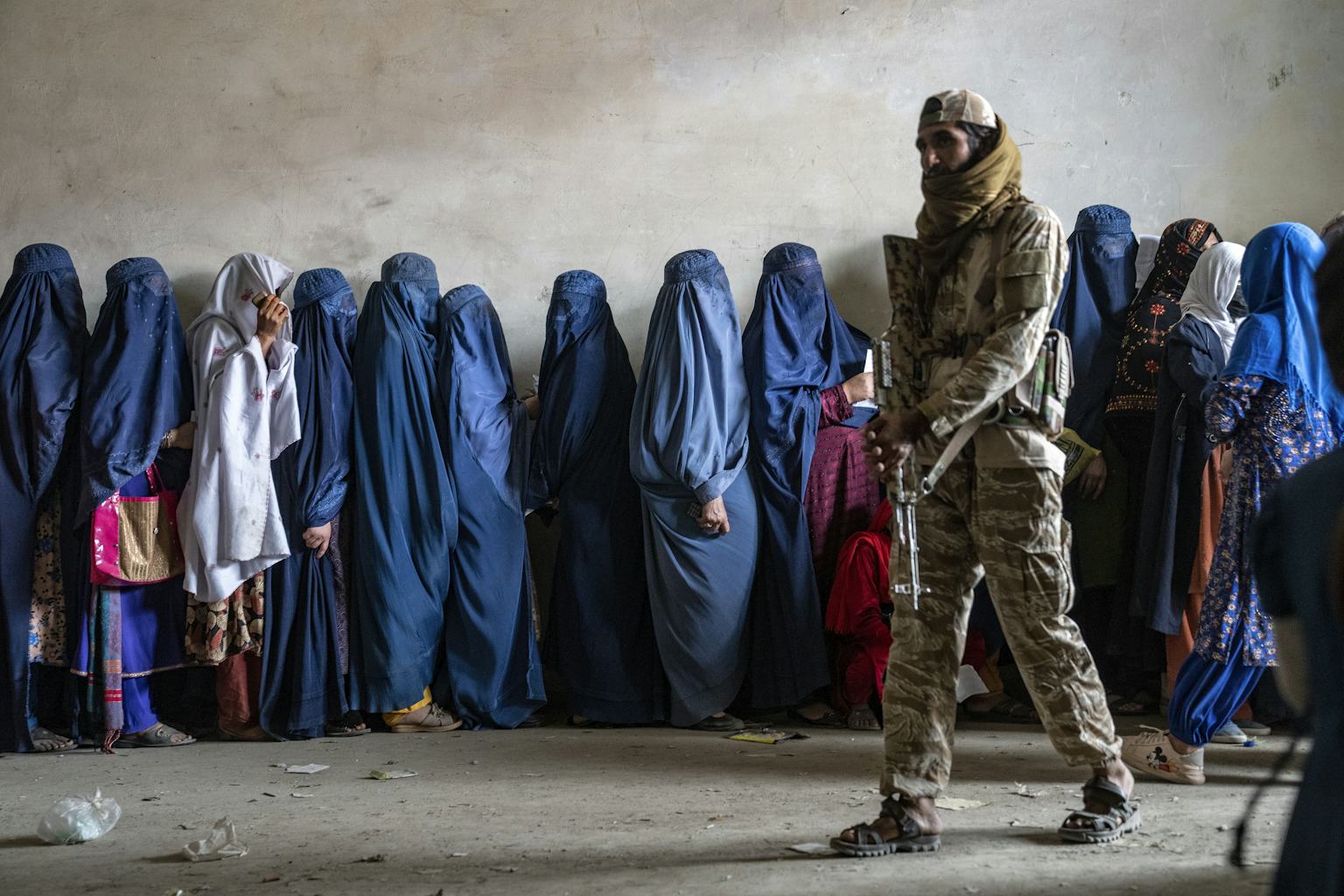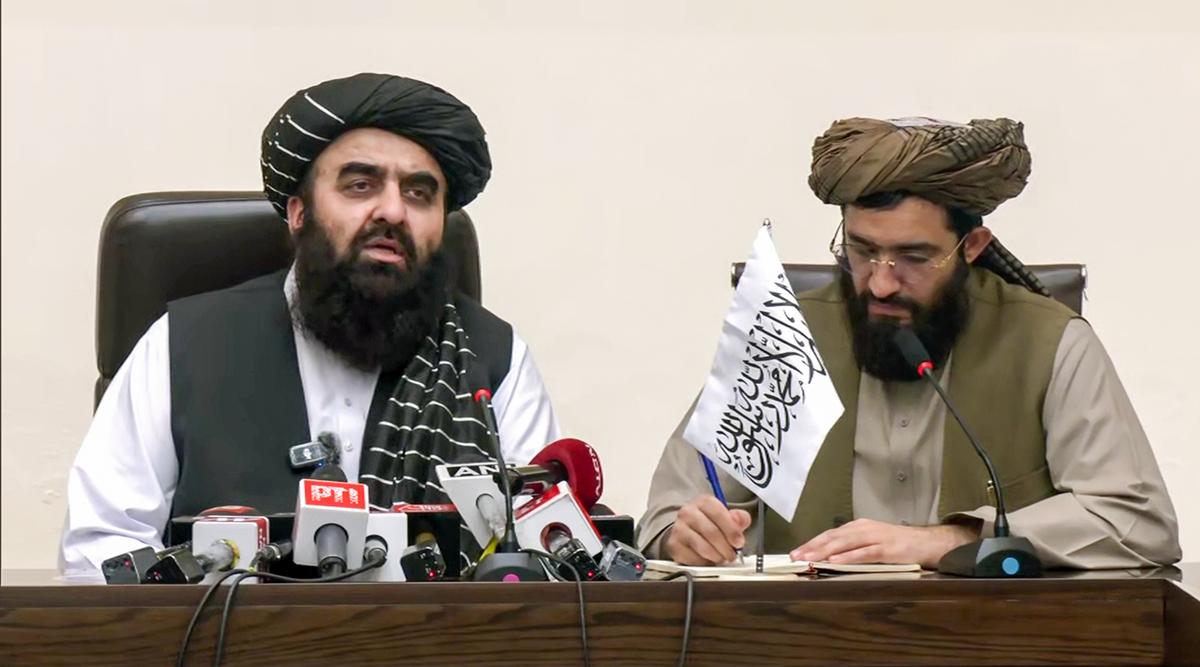
The biggest headline from last week was Taliban leader Amir Khan Muttaqi’s visit and the grand reception in India. Now, there are a number of geopolitical reasonings floating, especially on social media, somehow justifying how this is a wise move. But I firmly stand with what I said before, this idea is wrong and uncalled for.
In this Blog, I will discuss about the rampage Taliban has caused in Afghanistan, the strategic arguments around New Delhi’s move and why despite all this, the idea is a bad one.
Afghanistan Under Taliban
Ever since the Taliban took over Kabul following the withdrawal of US and NATO forces, the country has been grappling with severe and grave human rights violations. From women being barred from education, singing, speaking, displaying their face or getting out without a male guardian (basically anything an alive person does) to extrajudicial killings and public flogging of people at rampant scale, Afghanistan has been no less than a hell since 2021.
Taliban, whose literal meaning a ‘group of students’, has enforced the most radical form of Islamic Sharia law in the country, where women can’t go out alone, have to keep themselves covered, and are barred from studying beyond standard 6. The United Nations in a report called the “erosion of women’s rights” as one of the “most notable aspects of the de facto administration.”
Additionally, there has been a severe repression of press freedom and arbitrary arrests, detentions and tortures against journalists, protestors and civil society activists. Those having any links to the previous US-backed Ashraf Ghani government have been even more on target of these actions. The human rights situation has been exacerbated by a nationwide economic, financial and humanitarian crisis of unprecedented scale. So, we all should be aware of the ‘hell’ that has broken out in our neighbouring country under the Islamic fanatics since 2021.

The conditions of women in Afghanistan is no less than an apartheid (Photo: The Conversation)
Geopolitical Aspects Behind India’s Outreach
So, currently India is at a complex geopolitical mix. The US, with whom it developed a strategic partnership over the years has shown signs of uncertainty and even shaken hands with its arch enemy Pakistan. Russia, it’s long-standing ally was not that vocal or helpful during the May clashes with Pakistan, and now India is being also pressured by US to stop purchasing the Russian oil (and if Trump’s claims are true, India has agreed to it). Meanwhile, in the neighbourhood, Pakistan is a rogue terror state who now has a security agreement with Saudi Arabia and support of US. Bangladesh, hit by political upheavals has only drifted towards radicalism (much to New Delhi’s worry).
At this juncture, India believes that it needs to have working relationship with whoever is in power in Afghanistan. And for a fact, New Delhi had maintained some workable ties to facilitate aid for the Afghan people, but was being conscious before making full outreach to the Taliban. But, now once India seems confident that this Taliban will be holding power in Kabul for substantial period, it has decided to move with them, keeping in mind the $3 trillion investment it has made (between 2001-2021) in Afghanistan.

No female reporters were allowed in the press conference by Taliban (Photo: The Hindu)
The other aspect why India has decided to build ties with Taliban is because of the thaw the latter has developed lately with New Delhi’s disparaged neighbour, Islamabad. When Taliban seized power in Afghanistan, then Pak PM Imran Khan hailed it as ‘victory of Islam’, saying “Taliban has broken the shackles of slavery”. Well, the happiness didn’t last long.
The Pakistan-Afghanistan conflict stems from two critical aspects. Firstly, the British drawn border (Durand Line) which Taliban doesn’t recognize leading to skirmishes. Secondly, the terror group, Tehreek-e-Taliban Pakistan (TTP), a Pakistani offshoot of Taliban, whose main objective is to overthrow the “illegal” government in Pakistan and establish an Islamic caliphate. TTP carries out repeated attacks inside Pakistan, and Pakistan accuses Taliban of supporting and harbouring TTP (deja vu) leading to heated tensions over the last few years.

Amir Khan Muttaqi received a grand welcome in Deoband (Photo: Hindustan Times)
The Moral Conflict of Embracing Taliban
Now, all the geopolitical aspect might suggest that India should also normalize ties with Taliban, but we have to understand one thing. India’s foreign policy has always been of moral clarity. Till South Africa had not ended apartheid in their country, India didn’t maintain normal diplomatic relations with it. It was one of the leading voices globally in isolating the apartheid regime, normalising ties only in 1993. Same was India’s moral standing on the issue of Palestine, but that’s a separate issue and will talk about that in a separate blog.
It made news how no women journalists were present at the press conference in Afghan Embassy, nor at the Jaishankar-Muttaqi meeting. They were invited at a later press conference only after massive outrage. Also, while India in all its statements at global forums had been raising concerns over the condition of women in Afghanistan, nothing like that found any mention in the MEA statement issued following Muttaqi’s visit. So, does it mean India has given up its stand for women rights in Afghanistan? If that’s the case, then it’s deplorable beyond words.
For those who don’t care for moral stand, let me talk about a different aspect. Terrorism. There should be no doubts in anyone’s mind that Taliban is nothing but a bunch of bloody Islamist terrorists. Even this Muttaqi who received a grand welcome is a UN-designated terrorist and was granted an ‘exemption’ for this visit. While India presents itself as “victims of terrorism”, how can it shake hands with another terror group just because that group hasn’t bombed us yet.
So, does it mean while India preaches on ‘zero tolerance for terrorism’ it is fine with ‘some’ pieces of terrorism happening in its neighbourhood, as long as it’s not feeling the pinch. Also, as I mentioned Muttaqi is listed in that same UN-designated list of terrorists, where India has worked its might to get names like Hafiz Saeed and Masood Azhar. Then what is even the point of getting them added in the list, if this is how you want to treat them. Honestly, this is the worst foreign policy idea I have seen from my country in a long long time, and it only shows how desperate, reactive and clueless our foreign policy is looking at the moment.
The Graveyard called AFGHANISTAN – Arunesh Blog
Concerns over Taliban’s Grand Reception
Now, while I listed these many concerns regarding India’s stand on the issue, I am equally (perhaps more) upset with the whole section of Indian Muslims, who were getting gaga over a bunch of terrorists. Yes, whether at Deoband or at any other place where a designated Indian ‘guest’ is slated to visit, he will/should receive a decent welcome. But, my concern stems from the grandeur in which the people were greeting the radical Talibani leaders.
Even concerning was some people ‘defending’ Taliban and its radical-conservative-misogynist practices. This is not just sad but also concerning. It reflects the level of conservatism that continues to exist in some sections. I have always said conservatism, irrespective of which belief it stands for, has never done any good, can never take forward any society, and the better it’s shred off, the better.

